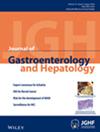Cumulative Dose of Regorafenib in Patients With Metastatic Colorectal Cancer: A Multicenter Cohort Study
Abstract
Purpose
This study aimed to evaluate the prognostic effect of the cumulative dose (CD) of regorafenib on survival in patients with metastatic colorectal cancer (mCRC).
Materials and Methods
This retrospective study utilized the Taipei Medical University Clinical Research Database for analysis. Patients aged ≥ 20 years with mCRC who were prescribed regorafenib between January 2014 and December 2021 were identified and then divided into low- and high-CD groups (≤ 4200 mg vs. > 4200 mg). Overall survival (OS), time-to-treatment discontinuation (TTD), and the incidence of five common adverse events were compared between groups. In addition, natural cubic splines were employed to examine the non-linear relationship between cumulative doses and survival in the multivariate Cox regression model.
Results
A total of 259 patients were enrolled, with 130 in the low-CD group and 129 in the high-CD group; the median OS was 4.6 months and 9.8 months, respectively (p < 0.01). The median TTD was 51.5 days for the low-CD group and 72.0 days for the high-CD group (p < 0.01). No significant difference in drug-related adverse events was observed between groups. In the multivariate Cox analysis, a CD ≤ 4200 mg was a negative prognostic factor (hazard ratio 1.41 [95% confidence interval 1.08–1.84], p = 0.01). In addition, patients on a dose range between 4368 and 5376 mg exhibited minimal mortality risk.
Conclusion
The cumulative doses of regorafenib > 4200 mg were associated with improved survival. The suggested optimal dose range serves as a reference for dose modification in clinical practice.

 求助内容:
求助内容: 应助结果提醒方式:
应助结果提醒方式:


